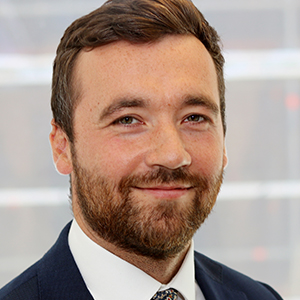In January 2020, 176 lives of passengers and crew were lost when a Ukraine Airlines Boeing 737 was accidentally shot down by the Islamic Revolution Guard Corps after take-off from Tehran. One of those on board was the owner of a laundrette in Sussex who had been on holiday visiting family in Iran. Compensation claims were made by various international groups of bereaved families against Ukraine Airlines in the usual manner in various courts in Canada and England. What was unusual was that Ukraine Airlines, and its London aviation insurers, decided to fight the families in court and try to limit their liability for each death to £130,000. After a lengthy legal battle, many bereaved families have now won their case and are rightfully entitled to full compensation.
That recent decision by the Ontario Superior Court of Justice in S. v. Ukraine International Airlines JSC is good evidence that airlines (and their London aviation insurers who control the claims) will struggle to limit their financial liability to bereaved families.
Airline negligence
On 8 January 2020, a Ukraine International Airlines (UIA) Boeing 737-800 (Flight 752) crashed near Sabashahr, several minutes after take-off from Tehran Imam Khomeini International Airport, Iran. Tragically, all 167 passengers and nine crew were killed. It was subsequently discovered that the Islamic Revolutionary Guard Corps misidentified the aircraft as a hostile target and fired two missiles towards the aircraft, which detonated in its close proximity. Other airlines like KLM and Air Canada had deliberately decided to delay their flights from taking off from Tehran due to concerns about safety.
The Aircraft Accident Investigation Board of the Islamic Republic of Iran carried out an investigation, which was less than transparent. The Canadian authorities also carried out an investigation (because there were many Canadian nationals on board who were killed). It highlighted the recklessness and incompetence of the Iranian civilian and military authorities. It was also apparent that Ukraine Airlines was also to blame, by failing to take reasonable steps that would have resulted in the aircraft not taking off that morning.
Many of the families who lost loved ones brought claims against the airline in the Ontario Superior Court of Justice in Canada, and most of these claims were governed by the Montreal Convention 1999. The parties to the trial agreed that an “accident” as defined in the Convention had taken place, and the airline agreed under the Convention that they were strictly liable for the accident. However, the airline did attempt to invoke Article 21(2) of the Convention, in an attempt to cap its financial exposure for each individual claim, by attempting to show that it was not negligent in carrying out the flight.
Article 21(1) confirms that for damages arising (per passenger) not exceeding approx. GBP130,000 an airline is not able to limit its liability; however, under 21(2), a carrier can avoid liability for damages exceeding this amount if the airline can prove that: (a) such damage was not due to the negligence or other wrongful act or omission of the carrier or its servants or agents; or (b) such damage was solely due to the negligence or other wrongful act or omission of a third party.
The main issue at the four-week trial was whether Ukraine Airlines and its London aviation insurers could successfully argue that it was not negligent, thus limiting their financial exposure.
The Canadian Court was unequivocal in its ruling, finding that Ukraine Airlines had failed to prove, on a balance of probabilities, that the passenger deaths were not due to its negligence, or that those deaths were solely due to the negligence or other wrongful acts of the Iranian Revolution Guards Corp. In simple terms, Ukraine Airlines was found to be legally negligent in deciding to carry out the flight.
Unsurprisingly, the judgment confirmed in specific and explicit detail that Ukraine Airlines failed to effectively evaluate the risks associated with the flight, given the unstable geopolitical environment at that time in Iran. The judge found that Ukraine Airlines were negligent for a variety of analytical failings, and for a failure to conduct a hazard identification and safety assessment.
Ukraine Airlines and its London aviation insurers were arguably poorly advised to fight the bereaved families in court in a doomed attempt to limit their financial liability to those families. Ironically, the cost of fighting the four-week trial and years of preparation will now cost the Airline and its aviation insurers many more millions – when they could simply have settled the bereaved families’ claims years ago. Technically, Ukraine Airlines has lodged an Appeal. However, since the Ontario Superior Court ruling is impeccably structured and based closely on the evidence, it is likely that the Appeal will fail.
It is yet to be seen what approach will be taken with respect to the more recent high-profile accident of Singapore Airlines Flight SQ321 (in which one passenger tragically died and many others were severely injured). In this accident, the crew decided to press ahead through an area of developing convective turbulent weather activity despite all other nearby flights opting to divert around the same area. It is unclear if Singapore Airlines and its London aviation insurers will attempt to limit their financial exposure using similar arguments to Ukraine Airlines. Given the facts of that accident and this recent judgment, it would appear to be in their best interests not to do so.
For more detailed information, please see our previous article here.
James and Owen are international aviation lawyers, with over 40 years of combined experience resolving high-profile aviation disputes and accidents worldwide. They have represented over 30 international families who lost loved ones in the Malaysia Airlines Boeing 777 Flight MH17 shoot-down in 2014 over Eastern Ukraine. If you need advice about an aviation accident, please contact James Healy-Pratt and Owen Hanna.
This article is for general information purposes only and does not constitute legal or professional advice. It should not be used as a substitute for legal advice relating to your particular circumstances. Please note that the law may have changed since the date of this article.


